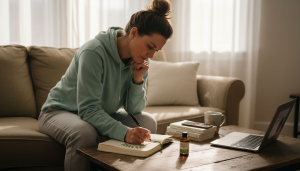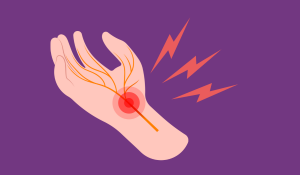Many types of congenital heart disease exist, and patients generally require treatment throughout their lives. Common adult symptoms include too-slow or rapid heartbeat, swelling, bluish tint in the lips, nails and skin, fatigue and shortness of breath. Initial studies on CBD for heart diseases show positive effects, but clinical trials are needed before determining its impact on the human cardiovascular system. In addition, CBD can interfere with heart medication. Patients are advised to consult a doctor about CBD use.
In adults, common symptoms include:
There are many variations of congenital heart disease. Some do not cause symptoms, while others may have symptoms that recur years after therapy. In most cases, the condition requires treatment throughout the patient’s life.
Researchers are studying the effects of CBD for heart attacks and strokes, and other heart conditions such as congenital heart disease. Studies on animals have presented positive effects of CBD on the cardiovascular system. CBD appears to have a protective role by reducing the effects of cardiac ischemia, a reduced ability of the heart’s muscles to pump blood. It also appears to offer a protective effect in models of stroke by maintaining cerebral blood flow.
In light of these findings, CBD could show a benefit for coronary heart disease patients or transient ischemic attacks. However, more analysis is needed. Researchers need to perform clinical trials to determine if initial findings translate into benefits for the human cardiovascular system.
Because the liver breaks down CBD in the body, the process can interfere with medications for heart conditions, such as warfarin, some statins, beta-blockers, calcium channel blockers and nitrates. Therefore, CBD can pose health risks to some patients with heart failure.
While initial trials indicate evidence of CBD’s positive effects on the cardiovascular system, patients with congenital heart disease and other cardiovascular conditions should speak with their doctor before using CBD.

Explore this cbd consumption methods tutorial and follow the step-by-step process to select, use, and verify the safest ways to consume CBD for wellness.
Read More
Learn what CBD edibles are, their main types, expected effects, legal status, safety factors, and how they compare to other forms of CBD.
Read More
Therapeutic Uses of CBD Managing Chronic Pain with CBD Struggling with chronic pain? CBD might help. Studies suggest it can reduce inflammation and alleviate discomfort,...
Read More
Just as CBD may help humans due to its interaction with the body’s endocannabinoid system, the same is true of dogs. CBD has the potential...
Read More
Cannabis has been used for millennia to treat numerous health conditions. Current research offers promising results on the effects of CBD oil on breast cancer.
Read More
What Is CBD for Cats? CBD (Cannabidiol) is a natural compound from hemp. It’s non-psychoactive, meaning your cat won’t get “high.” Instead, it works with...
Read More
1. Understanding Neuropathic Pain Neuropathic pain results from nerve damage or dysfunction, causing symptoms like burning, tingling, or sharp shooting pains. Common Causes: Symptoms Include:...
Read More
CBD for Pets: A Pet Parent’s Guide to Dosage We all want the best for our pets, especially when they’re struggling with pain, anxiety, or...
Read More
What Is Lupus? Lupus is a long-term autoimmune condition that can impact multiple organs, including the skin, heart, lungs, and kidneys. The most common type...
Read More
1. Full-Spectrum CBD: The All-In-One Option What it is: Contains CBD, minor cannabinoids, terpenes, flavonoids — and less than 0.3% THC. Why choose it: Promotes...
Read More